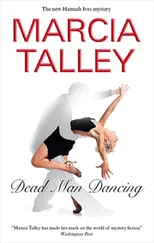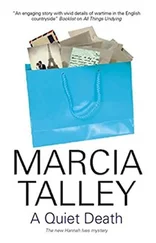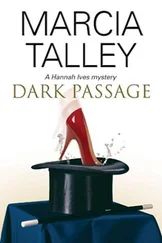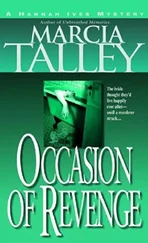I checked in with Dorothy every day after that.On Friday her headache was better, so she’d gone ahead with her chemo. The next day, however, the migraine came back with a vengeance, affecting her vision. Ted Hart, at home on leave before departing for Norfolk, called the doctor, who prescribed Imitrex for the pain. Kevin talked to his mother on the telephone, expressing concern, but refused to visit while his father was present.
It seemed like years had passed since opening night, but Sweeney was winding down at last. Friday’s show ran smoothly, Saturday’s was a triumph. Only the Sunday matinee to go, and the show would go down in Academy history.
On Sunday morning I telephoned Dorothy to say I’d check the set before the final performance, but Dorothy didn’t pick up. Never mind, I thought. She’s either too sick to answer the phone or she’s already on her way to the Academy. Better to err on the side of having two people show up to check the mechanisms rather than nobody.
The snow that had fallen midweek had begun to melt in one of those warm snaps that often comes to Annapolis in late February, fooling the crocuses into sending out green shoots and hopeful yellow blossoms in the mistaken assumption that it’s spring. I pulled into a parking spot in front of Mahan, where the piles of snow thrown up by the snow plow had begun to melt, sending rivulets of water trickling across the pavement.
Although it was nearly noon, few people were around. At the chapel, the Protestant service was still in session. Back in Bancroft Hall, midshipmen were probably catching a few last minute z’s before Noon Formation, sleeping off the excesses of a Saturday night away from the Yard.
In the auditorium, everything looked as we had left it the night before. The curtains stood open but the house lights were off so I couldn’t see very well, just the gray outlines of a set that I’d come to know so well-Sweeney’s tonsorial parlor, Mrs. Lovett’s pie shop, the hulking rectangle of her diabolical oven. It was so quiet I could hear my own breathing.
Or was it?
The breathing became a whimper, the whimper a moan, and I realized I was not alone.
“Hello?” I called out. “Anybody there?”
I drew closer to the stage. “Hello?”
The moaning seemed to be coming from the area around Mrs. Lovett’s oven, so I climbed the steps to the stage and crossed over to it. Someone was slumped on the floor, bent over a plastic waste basket, violently retching. “Dorothy?” I rushed over and knelt next to my friend, lifting her chin so I could look into her eyes. “My God, Dorothy, what’s wrong?”
“Oh, Hannah, I think I’m losing my mind! I had chemo yesterday, but this whole business about Ted and the investigation has got me so spun up that I forgot to take my antinausea medication. Oh, God, I feel like hell.” She ducked her face into the wastepaper basket again, her body jackknifing in its futile attempt to vomit up something, anything.
“Dorothy, how long have you been like this?”
With her face still in the basket, Dorothy shook her head. “I don’t know, maybe an hour.” She curled up like a leaf in autumn, and the horrible dry heaving continued.
When the retching subsided, I gathered her into my arms, gently rocking. I straightened her wig, which had tipped over her forehead and was in danger of falling off the next time she dove for the wastebasket. “Dorothy, this is way past the point where it’s going to get better by itself. You need to see a doctor. I’m going to take you to the emergency room.”
Dorothy lay limply in my arms and moaned.
One arm at a time, I shrugged out of my coat and folded it like a pillow, using it to prop Dorothy into a sitting position against the oven. “Wait here. I’ll be right back.”
Dorothy raised a hand, then let it drop to her side. “Hannah, don’t leave me.”
“I’ll be right back. A minute, no more.”
I dashed off stage left and ran down a short flight of stairs that led to a little vestibule. On my left a spiral staircase went up and up, first to the balcony, then to rooms at various levels in the clock tower. In the other direction was a janitor’s closet, and just beyond, on the other side of the door, I remembered seeing a water fountain. I wrenched open the closet door, grabbed a handful of paper towels, and wet them thoroughly at the water fountain. Then I hurried back to Dorothy.
“Here,” I said, handing her a paper towel dripping with water. “Suck on this. You’re dehydrated.”
“I’m going to die! ” she moaned.
“Trust me. You’re not going to die.” With one of the towels, I swabbed her forehead and cheeks. “You’re going to the hospital where they’ll give you something that will stop the nausea.” I tugged on her shoulders, urging her to muster what resources she had and stand up, but she was dead weight in my arms. “Come on, Dorothy,” I urged. “Work with me here.”
“Oh, oh, oh, oh, I am going to die,” she whimpered.
“You’re going to be fine, but not unless you stand up and let me take you out of here.” I tugged on her again. “Dorothy!”
“I don’t want to go to the hospital! Kevin’s coming!”
I checked my watch. Twelve-fifteen. Kevin would be arriving in about an hour, along with the rest of the cast of Sweeney Todd, ready for costumes and makeup.
“What do you plan to do? Sit in the audience holding a wastebasket on your lap? Think! If you don’t come with me now, you won’t be well enough to see the performance, so there’s no use complaining about it.” I shifted my position until I was kneeling in front of her. I thrust my hands under her armpits and eased her into an upright position.
Dorothy’s hand began roving erratically over the floor. “Where’s my purse?”
“There you go!” I teased. “Barfing up major body parts and the woman still wants her purse.”
At that, Dorothy managed a laugh, but it quickly turned into a moan.
I felt around in the semidarkness until my hand touched the strap of her handbag. “I’ve got it,” I said, looping the strap around my neck. Then I persuaded Dorothy to wrap her arms around my neck, too. With Dorothy and her handbag hanging from my neck, I staggered to my feet. I eased an arm around her waist and shuffled her off the stage, into the lobby, and down the front steps of the building, where I opened the door of my car and pretty much shoved her in. “Lie back. We’ll be out of here in a minute.” I elevated her legs on a stack of overdue books, then covered her with my coat, tucking it snugly around her. In spite of the coat and the warmth of my car, she began to shiver.
After running the mini obstacle course of Jersey barriers that surrounded the sentry post at Gate 8, I turned left at the light and broke all kinds of land speed records getting to Rowe Boulevard. At Route 50, Rowe turns into Bestgate and it’s pretty much a straight shot to Anne Arundel Medical Center, if you know the back way in. After passing the Wawa, I turned left onto Medical Drive, ran the orange light at the next intersection, and veered left, winding around the Clatinoff Pavillion to the front of the building where EMERGENCY glowed in red neon from the top of the roof that sheltered the entryway.
I pulled in, set the emergency brake and left Dorothy in the car with the engine running. I waited-come on, come on !-for the glass doors to whoosh open ahead of me, then barged into the emergency room and looked around, feeling frantic.
With the exception of a receptionist, there wasn’t a nurse or an aide in sight.
Damn! Just when you need them, they disappear. Every time I’d been to Anne Arundel before, pink-shirted volunteers kept sprouting up like weeds, pushing gurneys, magazine carts, and empty wheelchairs, causing traffic jams all over the place. I rushed the information desk, where an aide was busily attaching a form to a clipboard. “Excuse me, but I’ve got a very sick woman in my car.” I waved my hand toward the wall of windows that separated me from my sick friend.
Читать дальше












